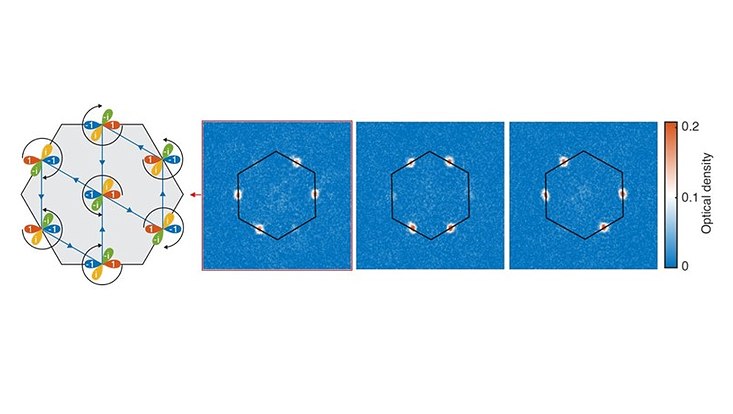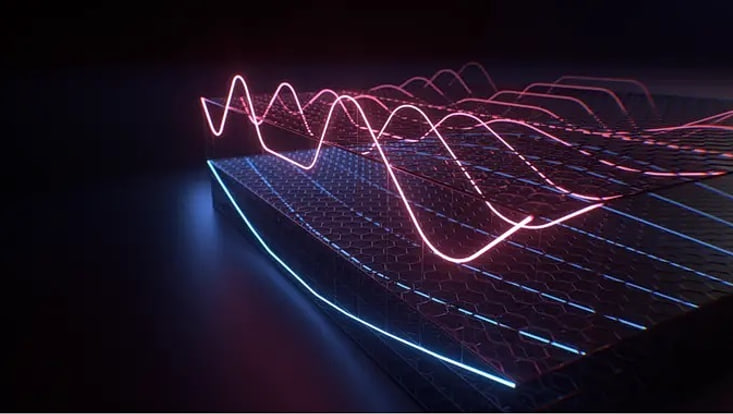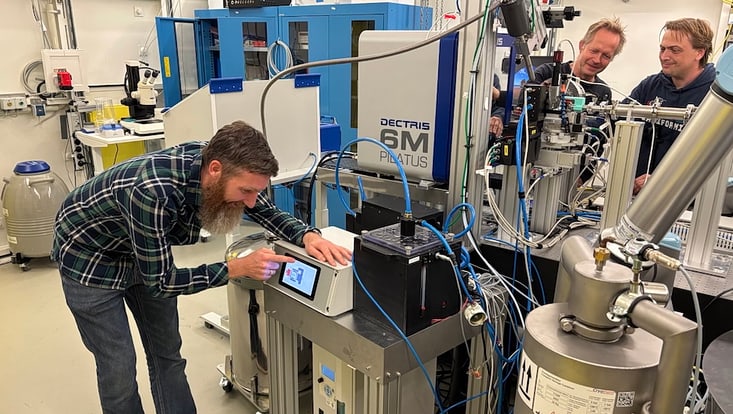Imaging of Matter
Intertwined orders of cold atoms in a triangular optical lattice
27 November 2023

Photo: UHH, AG Hemmerich
Understanding the intricate properties of materials such as high-temperature superconductors and other strongly correlated systems has long been a challenge for scientists. Through innovative quantum simulation techniques utilizing ultra-cold atoms in specialized optical lattices providing orbital degrees of freedom, an international research team could now observe interaction-induced spontaneous breaking of rotational and time-reversal symmetry associated with the formation of intertwined orders.
Scientists from the Southern University of Science and Technology in Shenzhen, the Chinese Academy of Sciences in Beijing, the Westlake University in Hangzhou, and the Cluster of Excellence "CUI: Advanced Imaging of Matter" at Universität Hamburg successfully generated an unconventional state of matter by arranging rubidium atoms in the second Bloch-band of a triangular optical lattice, demonstrating remarkably prolonged coherence times. This state, induced by interaction, spontaneously breaks rotational symmetry and time-reversal symmetry, a phenomenon predicted by theory almost two decades ago.
High precision measurements and analysis now confirmed the formation of condensates at finite momenta. The exotic stripe and loop current orders are traits shared with high-temperature superconductors and other advanced materials.
As CUI researcher Prof. Andreas Hemmerich from the Department of Physics at Universität Hamburg explains, these findings not only validate a longstanding theoretical prediction but open up a simplified sharper look at the phenomena of interaction-induced spontaneous symmetry breaking and intertwined order formation, enabled by the exquisite precision and control of a cold-atom scenario.
Citation
X.-Q. Wang, G.-Q. Luo, J.-Y. Liu, G.-H. Huang, Z.-X. Li, C. Wu, A. Hemmerich, and Z.-F. Xu
“Evidence for Quantum Stripe Ordering in a Triangular Optical Lattice”
Phys. Rev. Lett. 131, 226001 (2023)


